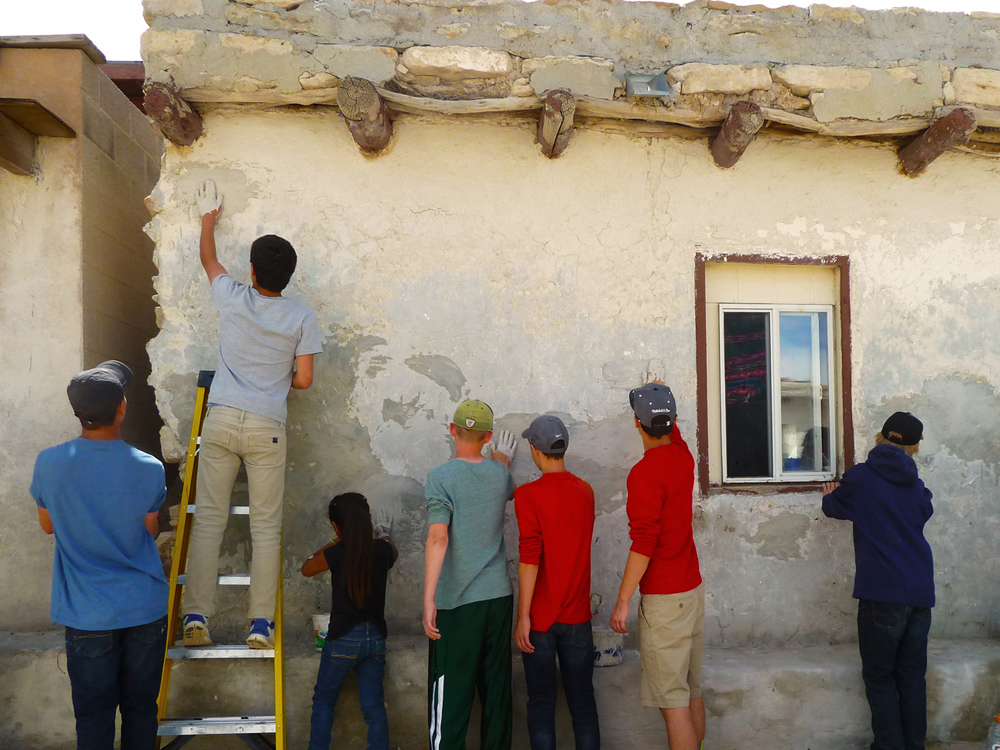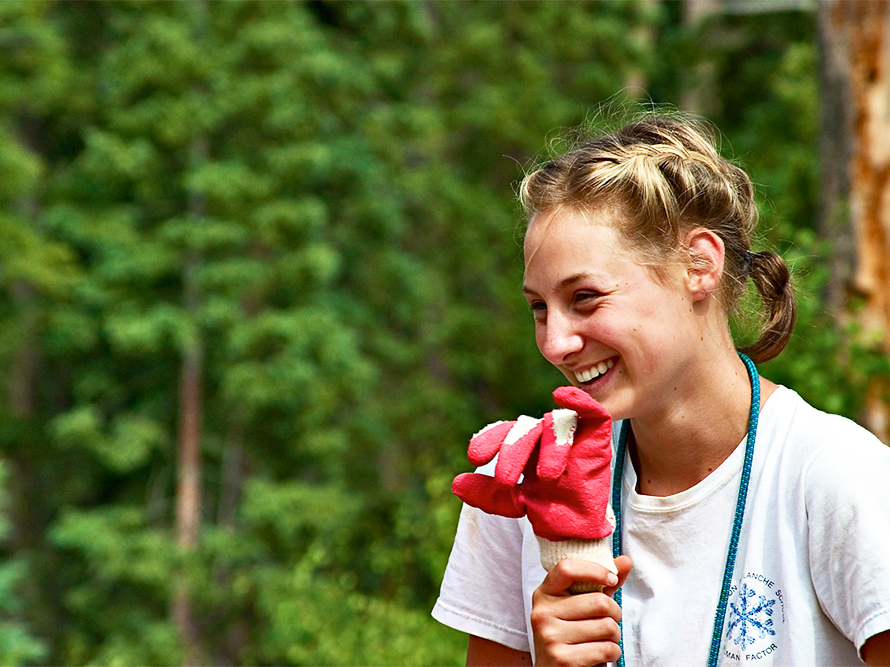Reciprocal Service and Cultural Exchange: We Give and We Receive
Engaging with communities through shared effort exemplifies the spirit of Deer Hill’s philosophy, and inspires people to connect across cultural boundaries, as well as with their own communities. We are honored to have long-standing relationships with families and communities in the Diné (Navajo) Nation and Hopi and Zuni Pueblos.
Our reciprocal service model is based on the knowledge that students receive as much as they give. While working alongside community members and contributing to real-life projects, they simultaneously gain valuable insights into traditional ways of life, working alongside locals who share stories, crafts, arts, and other aspects of their culture. It is a rare opportunity to learn about Indigenous culture and traditional lifeways in such a direct and unfiltered way.
“Service showed me that there will always be different cultures and people around the world, and we need to learn to appreciate their unique ways of being.” – Belen, 2022 Deer Hill student

Real Connections, Real Exchange, Shared Humanity
Cross-cultural and reciprocal service learning with Indigenous families and communities are core components of the Deer Hill experience. These experiences provide participants with a direct in-person and meaningful introduction to the cultures and traditions of Indigenous peoples of the Southwest. More than that, they foster a deeper understanding of the value of connecting across differences. Through shared work and authentic interactions, participants come to realize that while our backgrounds may differ, our shared humanity runs deeper than they ever imagined. This experience also positively impacts our Indigenous partners and hosts.
Our partnerships with Indigenous communities are built on mutual respect, reciprocity, and trust. In collaboration with our hosts, we contribute to projects that address their stated needs. This may include shearing sheep, building or repairing fences and corrals, projects related to water and energy, assisting elders, repairing traditional mud-brick ovens, and more. Students say that the reciprocal service component is often the highlight of their Deer Hill experience, creating lasting connections with their host families and communities.
After hiking the canyon, we did community service on the Hopi Reservation. We helped an incredible man (Marshall) build a house for his mother using mud and clay. He showed us how to mix sand and clay together, make sandbags, and apply the mixture onto walls. -Calib, 2022 Deer Hill student
Giving Back to Public Lands
Our public lands are a precious resource and deserve our collective attention and care.
Conservation projects happen in partnership with federal and state land agencies, as well as local environmentally-focused nonprofits. Projects provide fantastic opportunities for students to learn about local ecology, and encourage student investment and responsibility for care-taking public lands and wild spaces. Groups work to mitigate environmental damage, (re)build trails, restore watersheds and/or wildlife habitat, and more. Many students leave inspired and curious to learn more about how they can contribute to land/Earth stewardship.
Expeditions may include service projects arranged with the US Forest Service, Bureau of Land Management, or National Monuments and Parks. Participants in summer expeditions will receive certificates stating their service credit hours for use toward school or other requirements.

